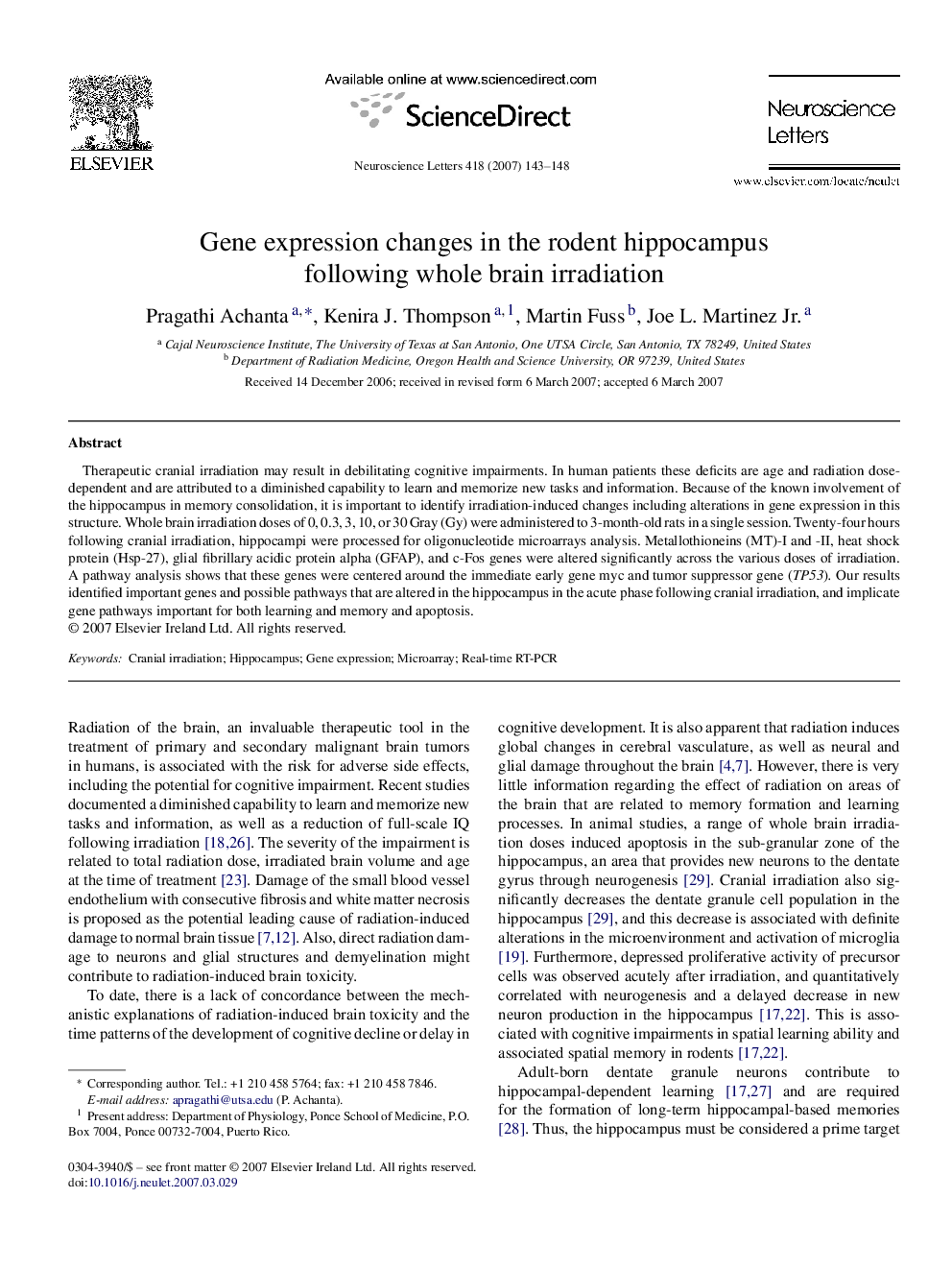| Article ID | Journal | Published Year | Pages | File Type |
|---|---|---|---|---|
| 4349452 | Neuroscience Letters | 2007 | 6 Pages |
Therapeutic cranial irradiation may result in debilitating cognitive impairments. In human patients these deficits are age and radiation dose-dependent and are attributed to a diminished capability to learn and memorize new tasks and information. Because of the known involvement of the hippocampus in memory consolidation, it is important to identify irradiation-induced changes including alterations in gene expression in this structure. Whole brain irradiation doses of 0, 0.3, 3, 10, or 30 Gray (Gy) were administered to 3-month-old rats in a single session. Twenty-four hours following cranial irradiation, hippocampi were processed for oligonucleotide microarrays analysis. Metallothioneins (MT)-I and -II, heat shock protein (Hsp-27), glial fibrillary acidic protein alpha (GFAP), and c-Fos genes were altered significantly across the various doses of irradiation. A pathway analysis shows that these genes were centered around the immediate early gene myc and tumor suppressor gene (TP53). Our results identified important genes and possible pathways that are altered in the hippocampus in the acute phase following cranial irradiation, and implicate gene pathways important for both learning and memory and apoptosis.
